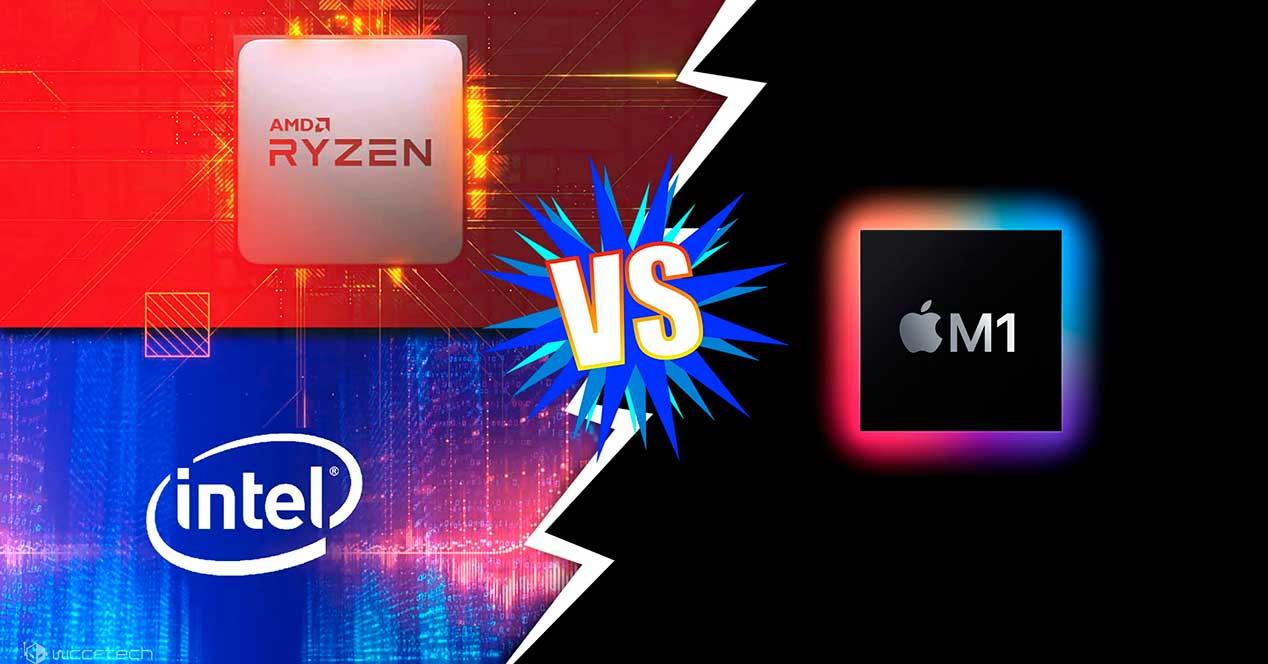That a giant like Apple supports a technology is not synonymous with triumph, as we have already seen on other occasions with themselves as an example. But what he achieves is to focus all eyes for a while to see where the industry and standards are developing. ARM as such is not new to the CPU industry, neither desktop nor server, but is it a safe bet for the future?
ARM, Apple, Intel and AMD, are we facing an official war between x86 and ARM?
There are many reasons why Apple said goodbye to Intel, but two emerge as the main ones, so Cupertino has taken a fairly controversial step in the industry: Apple is one of the founding companies of ARM, now owned by NVIDIA, and therefore, you have the flexibility to design a chip entirely from scratch under your patents and to your liking, although the architecture must be licensed for 32-bit and 64-bit respectively.
The second reason is that Intel has made very small leaps in performance and in efficiency they are not what those of the bitten apple want. With that in mind, it stands to reason that Apple has decided to take the leap into designing a fully custom, non-x86 SoC, migrating the vast majority of software and focusing on exactly what it will need at home. to come up.
Cross-licensing and patents from AMD and Intel is an issue that Apple doesn’t want to hear, there is no possibility to design a fully customized chip with them to the extreme, so if the engineers at the company claim to be able to design a chip that competes With the giants being more efficient and adapting their software, why stick with Intel and depend on their technology?
Is this the definitive takeoff of ARM against x86?
Not really, at least not yet. The problem with ARM is that it is used very specifically in different environments whereas x86 is more general use. A clear example is the latest moves from Amazon, Google or Microsoft itself: custom SoCs in ARM for their servers, where this customization allows software to also fit like a one-handed latex glove.
There, performance is won and given the inability of AMD and Intel to offer a fully personalized product from scratch, the big players in the sector prefer not to license and base their efforts and investments on ARM by customizing their processors, so that what in general would generate worse performance from an Intel Core or Xeon, or an AMD Ryzen or EPIC, turns out to outperform them even more effectively.
Therefore, ARM wins the battle in the servers of large companies with the strength to design processors, but in the others everything will continue to run the same way so as not to have precisely that financial boost.
In the mortal world, in the general market, ARM has its market share, small, but it does exist, but in general neither AMD nor Intel is going to lose their current and future leadership because their processors are doing very well what they should. do: adapt to all conditions under 32-bit or 64-bit.
Windows will help low-end deployment
The truth is that, taking a general look at all scales and all sectors, ARM has won the battle in mobiles, in integrated with IoT, in common servers, it is competitive, in custom, it is king, and it even fits into laptops. gradually. Windows 10 will natively support its architecture by offering good support, so everything could lead us to think that it will be a defeat for x86 in no more than two decades, but…. NVIDIA is involved.
NVIDIA’s purchase of ARM has changed the paradigm of industry and even semiconductors. We don’t know how NVIDIA is going to handle this, but it’s very likely that it will turn off the tap in some areas to promote its own ARM-based architecture that comes into play where AMD is now king: on consoles.
Then you could try to focus on low power processors and why not servers. He will no doubt continue to fire, as the payoff is huge, but he could be a new player on the pitch. It also opens up a new and hypothetical path for those like China who don’t want to enter through the US: RISC-V.
A giant with muscle like China betting on RISC-V across its industry and with Huawei at the helm could be a hit that neither x86 nor ARM sees coming in time. In any case, the ARM improvements are also at a standstill as has happened to Intel before, only AMD seems to have a credible and scalable roadmap.
Therefore, it is very unwise to say that ARM or Apple are going to outperform their rivals, they will do so on their closed platforms and because they cannot be compared, but ARM as such will have to keep fighting. if he wants the x86 cake.











